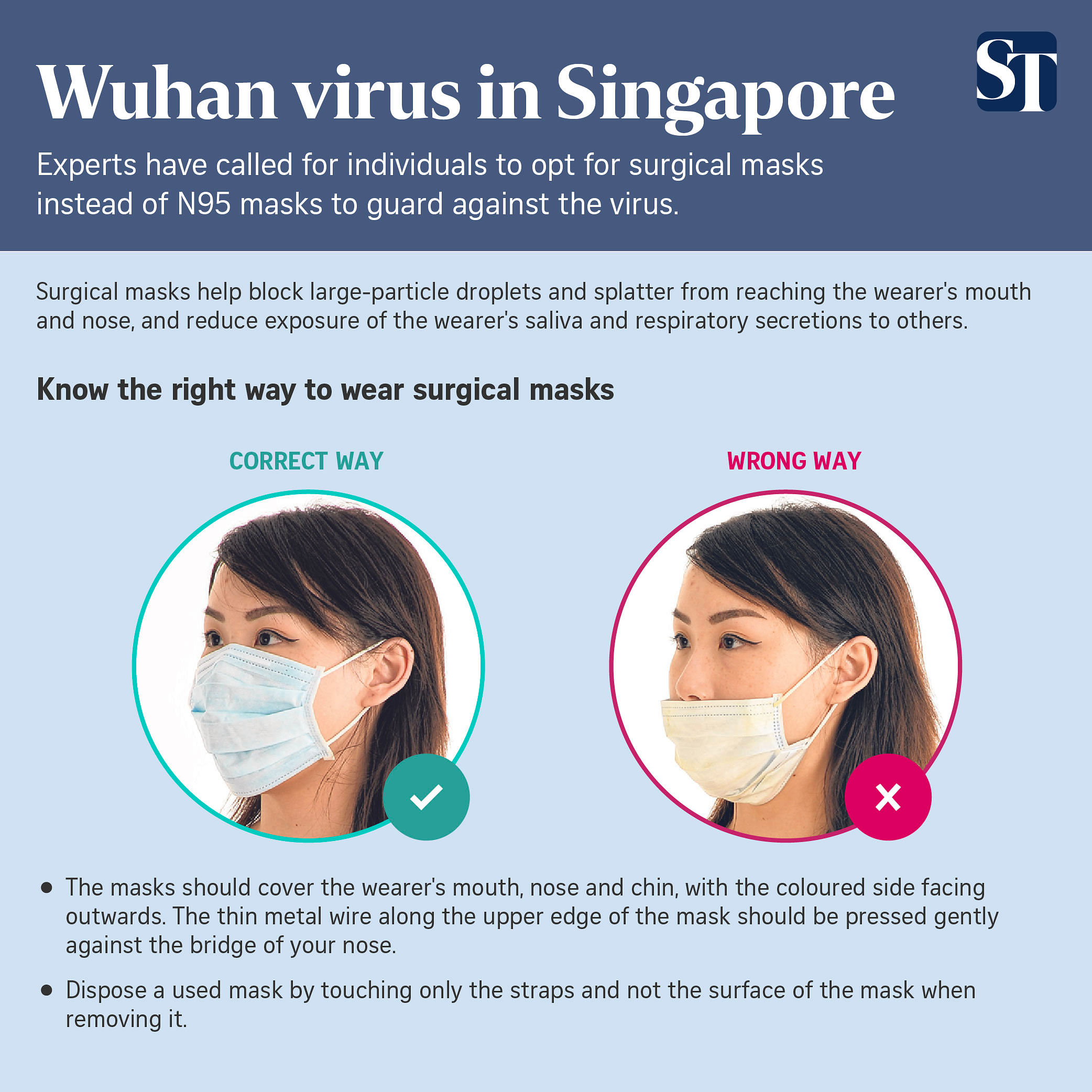NEW YORK (NYTIMES) - Chinese authorities have encouraged people in the city of Wuhan to wear surgical masks in public to help curb the spread of the new coronavirus.
The question is: do they work?
Many infectious disease specialists say the cheap disposable masks, which cover the nose and mouth, may help prevent the spread of infections if they are worn properly and used consistently.
But there isn't much high quality scientific evidence on their effectiveness outside health care settings, experts say. Most of the best studies, which are randomised controlled trials, focused on how well surgical masks protect health care workers in hospitals from picking up infections from sick patients, and found that consistent use of them helped.
Dr Julie Vaishampayan, chairman of the public health committee for the Infectious Diseases Society of America, said surgical masks are really "the last line of defence."
"We worry about people feeling they're getting more protection from the mask than they really are," she said. "Washing your hands and avoiding people who are ill is way more important than wearing a mask."
Because surgical masks aren't fitted or sealed, they leave gaps around the mouth, "so you're not filtering all of the air that comes in," she said.
The masks will, however, block most large respiratory droplets from other people's sneezes and coughs from entering your mouth and nose, said Dr Amesh Adalja, an infectious disease physician at the Johns Hopkins Centre for Health Security. Coronaviruses are primarily spread through droplets, he said.
The bigger problem is that people don't use the masks properly. "Most people will put their hand underneath the mask to scratch their face or rub their nose," bringing contaminants in contact with the nose and mouth, said Adalja. "You can't take it off when you get a phone call."
Dr Mark Loeb, an infectious disease specialist at McMaster University in Hamilton, Ontario, said a study during an outbreak of the Sars coronavirus found that any type of protection - whether a mask or a respirator - reduced the risk of infections in health care workers by about 85 per cent.
"The most important message was that the risk was lower if they consistently used any mask," he said.
There is general agreement that infected patients who wear surgical masks are less likely to spread infection to others. The US Centers for Disease Control and Prevention has instructed hospitals to ask any patients who have a fever or respiratory illness, have recently travelled to Wuhan, or have come in contact with someone who has travelled there, to wear a surgical mask.
The CDC also recommends that health care workers wear a respirator, which filters out more particles than a mask, when they are around such patients.
In the US, the risk of becoming infected with the coronavirus - where there is only one confirmed case - is "way too low to start wearing a face mask," said Dr Peter Rabinowitz, who is co-director of the University of Washington MetaCenter for Pandemic Preparedness and Global Health Security.
But washing hands - frequently and before eating - is universally recommended. Hand sanitiser is effective against respiratory viruses. Experts also recommend washing hands with soap and water for at least 20 seconds, rubbing the hands together and ensuring all parts of the hands - the palms as well as the back of the hands - are washed.
"It's also important to keep your hands away from your face," said Vaishampayan. "Respiratory viruses don't infect through your skin, they infect through your mucous membranes: the eyes, nose and mouth."












